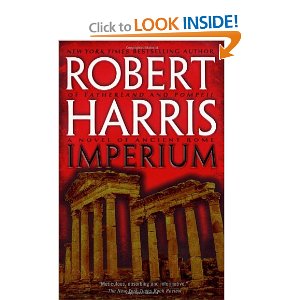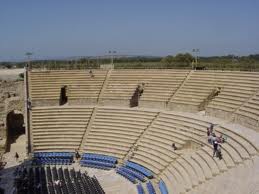This post however is devoted to his 2007 release— Imperium a word which refers to highest power and authority, the power of life or death over others, something many Romans longed for, not least that upstart ‘New Man’ from out of town (Arpinum actually) whose name refers to the Chickpea! I mean Cicero, perhaps the greatest of all the Roman orators during the Republic. In fact however, this novel, while being about Cicero, is in fact told from the point of view of his slave and famous scribe Tiro, who invented the notion of shorthand (using symbols for words and short phrases) which allowed him to take down the speeches of his master verbatim.
Tiro was indeed a real historical person, who really did invent shorthand in an age where only a tiny minority of people could read and write. For Cicero, he was more invaluable, almost, than even his wife, who provided the money for Cicero to climb up the cursus honoroum, the ladder of positions and fame and power in Rome. The novel is 305 quick pages, and I intend to use some of it for my class on Socio-Rhetorical Criticism for our doctoral students this summer.
Here is a brief sample which shows one of the things students of the NT need to learn about the oral and rhetorical nature of the Greco-Roman world— Then Tiro adds “The dominant school of rhetoric at that time was the so-called Asiatic method. Elaborate and flowery, full of pompous phrases and tinkling rhythms, its delivery was accompanied by a lot of swaying about and striding up and down.” (pp. 5-6). Had NT scholars known much of anything about rhetoric, they would have realized that this style, which flourished in places like Ephesus and Magnesia, up and down the west coast of modern Turkey, is the rhetoric we find in a book like Ephesians, which is full of flowery long epideictic sentences.
Cicero however wanted to also learn the more sedate Attic style as well, and so he went to Rhodes to study with Mallon. Tiro says “His theory of oratory, just the opposite of the Asiatics, was simple: don’t move about too much, hold your head straight, stick to the point, make them laugh, make them cry, and when you’ve won their sympathy (with an emotional peroration) sit down quickly, ‘for nothing’ said Molon, ‘dries more quickly than a tear’.
Molon then put Cicero through a physical regimen so he would have the strength and stamina to declaim for hours at end if need be in a trial, and taught him how to speak mainly using his powerful part of his voice— mid-range. If you speak too high, it sounds silly and shrill, too low, it won’t be audible to senior folk. So Cicero trains like Demosthenes did, declaiming on the beach over the roar of the sea. Molon then stressed that in a rhetorical culture like theirs content matters less. what is critical is ‘delivery, delivery, delivery’.
Molon was also concerned with appearance and gestures. “There should be no effiminate bending of the neck, no twiddling of the fingers. Don’t move your shoulders. If you must use your fingers for a gesture, try bending the middle finger against the thumb and extending the other three— that’s it, that’s good. The eyes of course are always turn in the direction of the gesture, except when we have to eject: ‘O gods, avert such a plague!’ or ‘I do not think that I deserve such honor.'” Nothing was allowed to be written down, for no orator worthy of the name would dream of reading out a text or consulting a sheaf of notes. Molon favored the standard method of memorizing a speech: that of an imaginary journey around the speaker’s house.” (p. 8).
You get the flavor of this. Frankly if more preachers actually had rhetorical training, we would at least have better more well delivered and well organized sermons. Rhetoric was indeed the ancient art of persuasion. Another interesting feature of this novel is that it is arranged by rolls, chronologically, for of course rolls limited how much one could say in a particular document.
The story of Cicero’s adult life as an orator and politician is fascinating, and the best parts of this novel are the verbatims from some of his speeches, which shows you how ancient rhetoric worked. I commend this novel to anyone wanting to understand Paul and his speeches…..err so-called letters. Cicero, though he was vain, was a man of principle and a true Roman and you also learn what that amounted to in the course of this novel. You will further learn the origins of our modern forensics, the advocacy system. Many Americans do not understand that’s how our legal system works and thus do not understand why someone would defend a scoundrel. But everyone is entitled to a good defense in the advocacy system.
This novel breezes right along and stops before it becomes tedious following the rhetorical rules. I will not spoil its plot for you, but its a lot of fun and full of tension and action. I highly commend it to you if you want to understand the world of the NT.
On pp. 5-7 Tiro describes how Cicero got his philosophical and rhetorical training, namely by going to Athens and studying at the Academy there and then going on to Asia Minor and Rhodes to study with the famous rhetoricians there. What was extraordinary in this was that Cicero had Tiro come to the lectures as well so he would have someone to talk rhetoric and philosophy with, the rest of his life.


